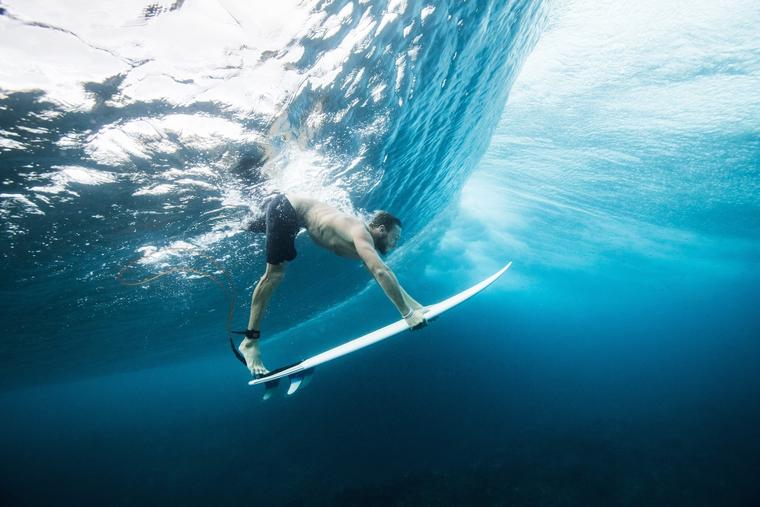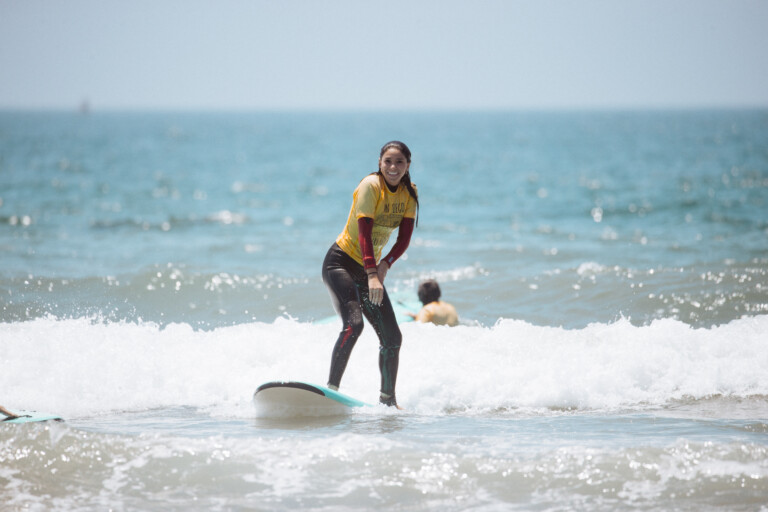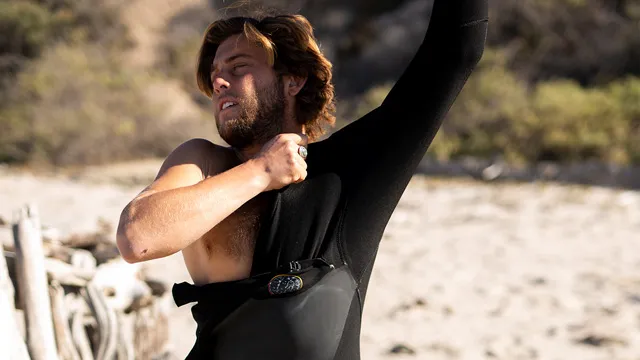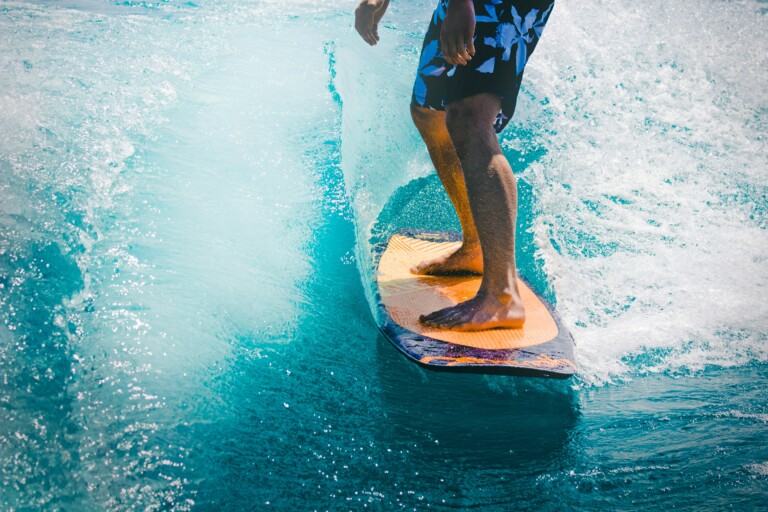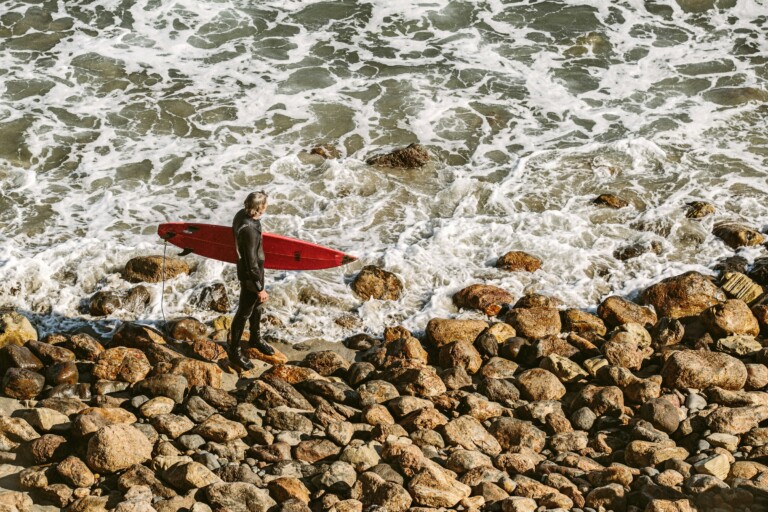Duck diving is a fundamental technique in surfing that allows a surfer to pass through an oncoming breaking wave while paddling on their surfboard. This skill is essential for surfers because it helps them navigate through the waves more efficiently, conserve energy, and maintain their position in the lineup. Here’s a step-by-step guide on how to perform a duck dive:
- Approach the Wave: As you paddle toward an approaching wave, it’s essential to judge the wave’s timing and determine when to execute the duck dive. You’ll want to start the maneuver when the wave is about to break or crash over you.
- Maintain Speed: Paddle hard to generate momentum. The key to a successful duck dive is to maintain as much speed as possible. This speed will help you push the board underwater and through the wave.
- Angle Your Board: As you approach the wave, angle your surfboard diagonally (nose facing down at an angle) to allow the water to flow over the deck and reduce resistance.
- Push the Nose Underwater: Just before the wave is about to break over you, arch your back and push down on the back of the board while grabbing the rails. This action will lift the board’s tail out of the water and angle the nose down.
- Submerge the Board: While pushing down on the board’s tail, simultaneously kick your feet to help drive the board underwater. The goal is to submerge the board as deep as possible to avoid getting pushed backward by the wave.
- Hold Your Position: As the wave passes over you, stay low and keep a firm grip on the rails to prevent the whitewater from pushing you back. Your body should be as flat as possible on the board to minimize resistance.
- Surface on the Other Side: Once the wave has passed, release your grip on the rails, straighten out the board, and paddle back to the lineup. It’s important to regain your speed quickly to maintain your position.
It may take some practice to perfect your duck diving technique, as it requires timing, strength, and balance. It’s also important to adapt your approach based on the size and power of the waves you’re dealing with. Smaller waves are easier to duck dive, while larger, more powerful waves may require a stronger effort.
Mastering the duck dive is crucial for surfers looking to progress in their skill level, as it allows them to paddle out beyond the breaking waves and catch more waves effectively.






